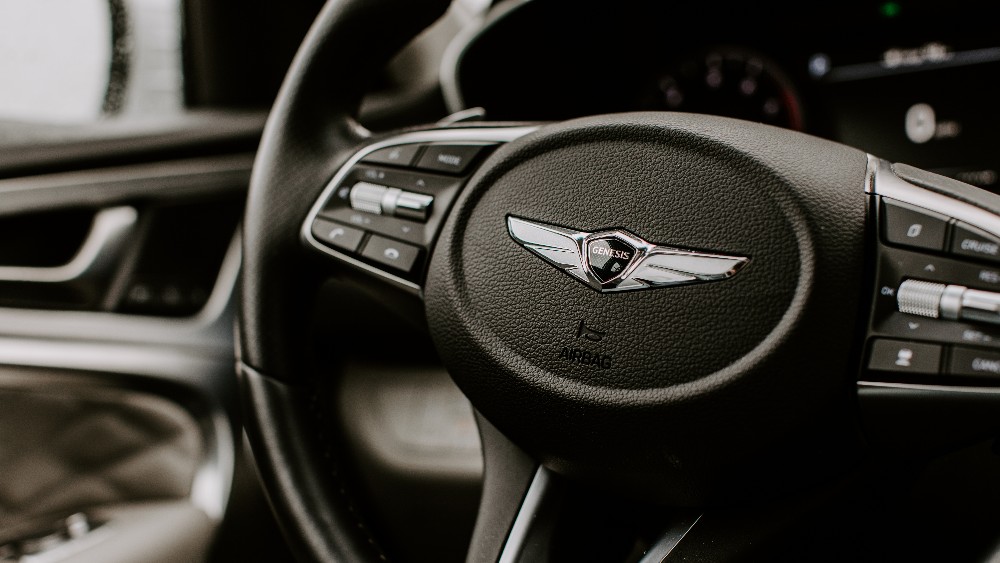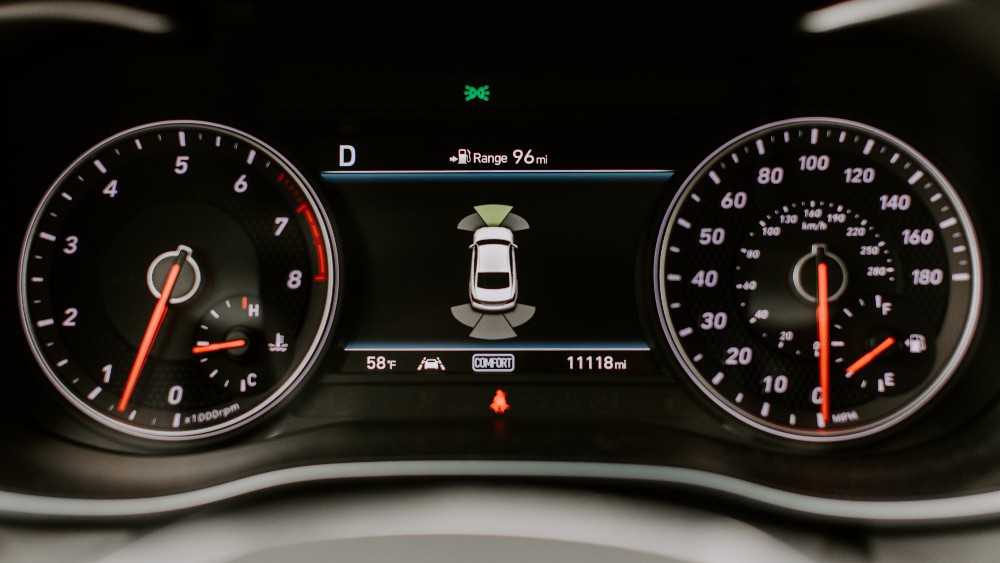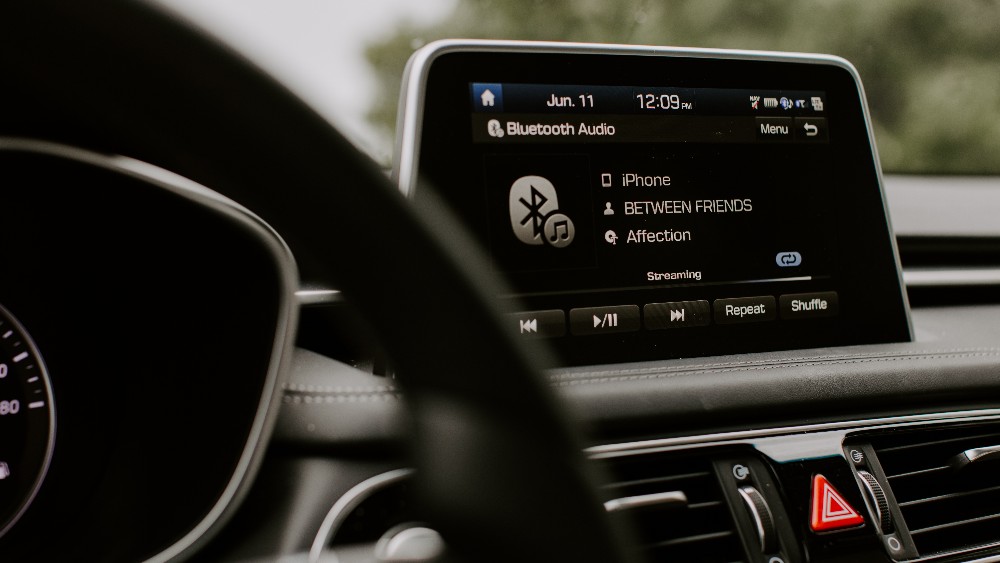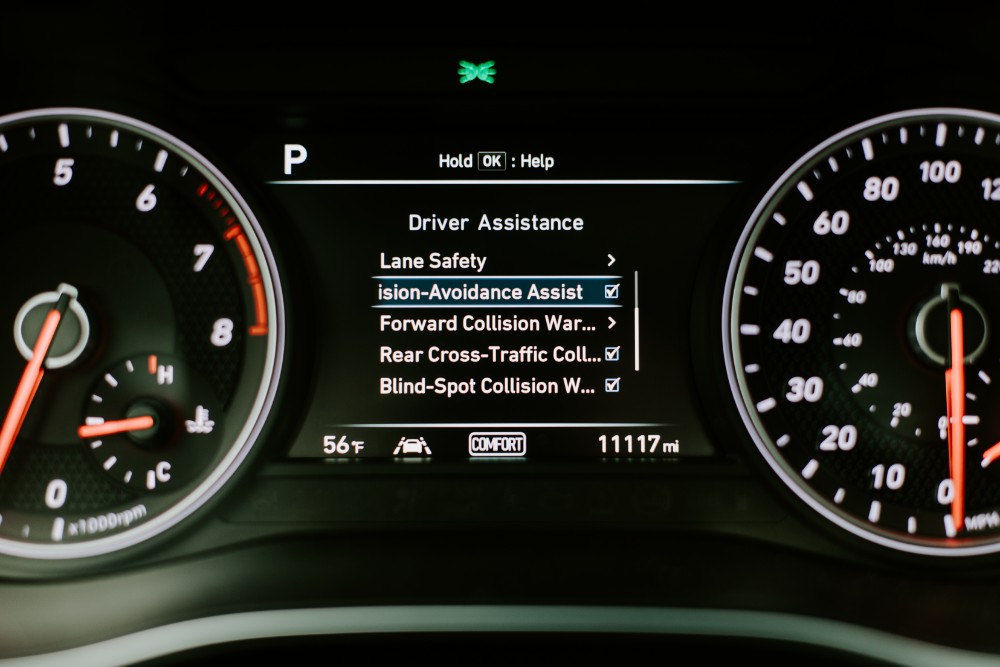The collision detection on the 2019 Genesis G70 actually worked in a real situation
A narrow escape (possibly)

I rarely get a chance to test collision detection on any car, and for good reason. If the condition ever comes up, it’s usually stressful and even avoidable. Normally, if you stay far away from the cars in front of you on the highway, from example, you won’t have to brake suddenly. And if you pay attention at all times, you can react quickly without any help.
That was a nice theory up until this last week when I was driving the 2019 Genesis G70, a smart and stylish luxury sedan. It wasn’t an overly tense situation – just normal highway driving with a lot of cars. However, I did have one instance where the G70 noticed a stoppage in front of me and decided to not only apply the brakes but to swerve to the right a little.
When this happens in other cars with advanced tech, the feeling is exactly like a robot has taken over the driving for you. The brakes work independently of your own feet, the steering went into fully automated mode.
In terms of autonomous driving, this is exactly what you want – the G70 had a mind of its own, and that’s a good thing because my mind was not fully capable of avoiding a problem. Robotic driving isn’t just a convenience. Once you have experienced collision detection and mitigation first hand, you start to understand the future of all driving will be computerized.
Taking charge
Interestingly, what really happened is that I didn’t quite understand how quickly the cars in front of me were braking. It’s a bit of an illusion on the road – we see cars and we see taillights, but we don’t see the fast rate of deceleration. A computer does. The sensors can tell that the braking in front of you is serious enough that it has to act. Algorithms wait for you to respond, but if you don’t react the car knows it has to take over or there will be an accident.
I went back to a conversation with my wife as though nothing had happened, but of course it’s impossible to know if that situation could have been dire.
Future cars will take that concept of thinking for us to another level entirely. I like how the G70 doesn’t overwhelm you with extra information, because as autonomous cars become a reality, we won’t need all of that data. What we will need is some help.
Sign up for breaking news, reviews, opinion, top tech deals, and more.



Interestingly, what really happened is that I didn’t quite understand how quickly the cars in front of me were braking. It’s a bit of an illusion on the road – we see cars and we see taillights, but we don’t see the fast rate of deceleration. A computer does. The sensors can tell that the braking in front of you is serious enough that it has to act. Algorithms wait for you to respond, but if you don’t react the car knows it has to take over or there will be an accident.
I went back to a conversation with my wife as though nothing had happened, but of course it’s impossible to know if that situation could have been dire.
Future cars will take that concept of thinking for us to another level entirely. I like how the G70 doesn’t overwhelm you with extra information, because as autonomous cars become a reality, we won’t need all of that data. What we will need is some help.
Intervention and augmentation
Someday, cars will know way more than we can possibly ever ascertain. I was thinking about this situation specifically. For one, the car will connect to the local infrastructure, and the road itself will report back on the location of every other car, including the one that over-braked.
Curiously, these calculations will occur in real-time and take into account the weather conditions, the speed of traffic, the previous accidents in this area, the state of the drivers operating the other cars, plus hundreds more factors, and all in a few seconds, all without our knowledge.
Today, it's just one G70 analyzing the conditions with sensors, but in the future the data will be far more robust and, in the end, we’ll be far safer.
There’s some debate about whether we want to cede control to the carbots. I will say that there is a danger about artificial intelligence thinking for us constantly, to the extent that we don’t even have to think anymore. Someday, we might need to make autonomous driving an advanced setting that requires a certification level or a certain amount of driving experience.



Where I diverge from the AI doomsayers is when I experience a situation like the one with the G70 – I couldn’t possibly pay attention at all times on every road. We want intervention and augmentation, which isn’t a bad thing. However, we should be leery of replacement that dumbs us down to the point where we won’t even know how any of this works or what the car is doing or why.
For now, I’m happy with the results. I went right back to driving in full control.
On The Road is TechRadar's regular look at the futuristic tech in today's hottest cars. John Brandon, a journalist who's been writing about cars for 12 years, puts a new car and its cutting-edge tech through the paces every week. One goal: To find out which new technologies will lead us to fully self-driving cars.

John Brandon has covered gadgets and cars for the past 12 years having published over 12,000 articles and tested nearly 8,000 products. He's nothing if not prolific. Before starting his writing career, he led an Information Design practice at a large consumer electronics retailer in the US. His hobbies include deep sea exploration, complaining about the weather, and engineering a vast multiverse conspiracy.